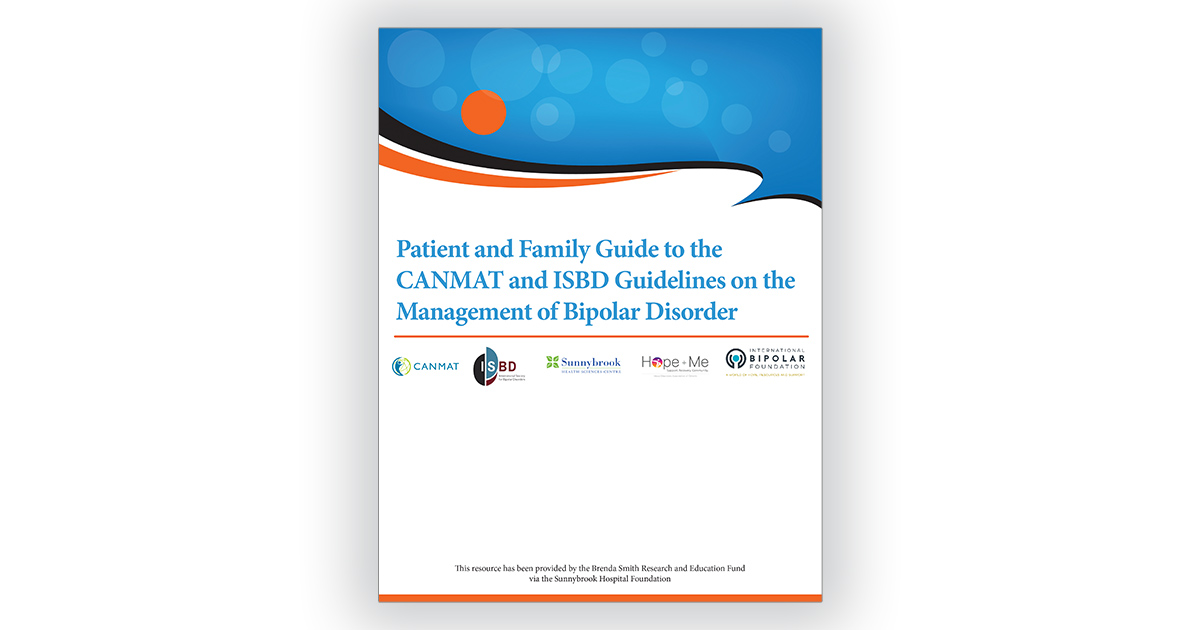Sunnybrook experts and patient families help shape international bipolar disorder guide
The latest international resource to help patients and families dealing with bipolar disorder has been created with insight and support from experts in Sunnybrook’s Department of Psychiatry along with the department’s Patient and Family Advisory Council (PFAC).
The Patient and Family Guide to the CANMAT and ISBD Guidelines on the Management of Bipolar Disorder is aimed at helping patients and families with information about up-to-date evidence-based treatments available for bipolar disorder, in addition to encouraging collaboration between patients, families and health care teams.
“This was a co-development project, so the role of PFAC and other patient and family groups regionally and internationally, was central to the project,” says Dr. Ayal Schaffer, Head, Mood and Anxiety Disorders Program at Sunnybrook and editor of the guidelines. “They contributed by identifying what would be most useful and interesting to patients and families. The teams worked together to ensure that the format was as user-friendly as possible.”
Bipolar disorder affects an individual’s mood and causes extreme changes in their emotional state from depression and mania, to feeling and functioning well. Symptoms of bipolar disorder typically develop during the late teenage years or early 20s. Nearly one in 100 adults will have Bipolar Disorder Type I. It’s estimated one in 140 will have Bipolar Disorder Type II.
“When patients and families have an awareness of the latest information, this helps facilitate a deeper discussion between them and their health-care teams. The booklet can provide patients with details on treatment approaches, and that knowledge can lead to a richer interaction when clinical teams and patients consider treatment options,” explains Dr. Schaffer.
The guidebook includes practical tips to help make appointments more productive, as well as a checklist of symptoms to help families provide a complete picture of their love one’s health.
“All patients deserve to receive the best evidence-based care possible. Finding a way for patients and families to have a better understanding of that will allow them to be stronger advocates for themselves,” says Dr. Schaffer. “Bipolar disorder requires complex treatments, and the more patients and families can feel they are actively part of the process, the more likely they are to feel confident in the care they are receiving.”



